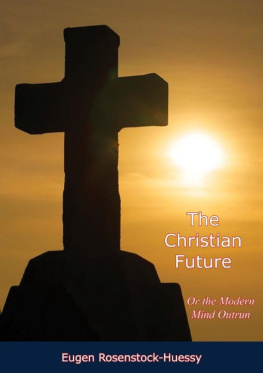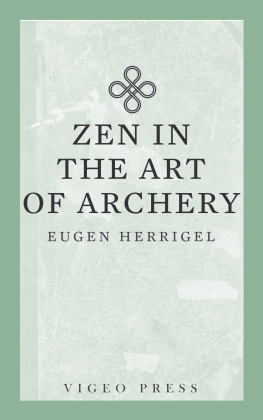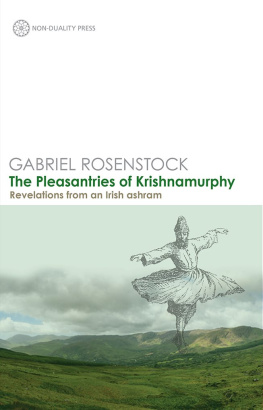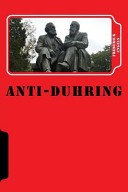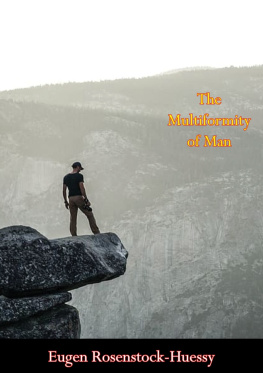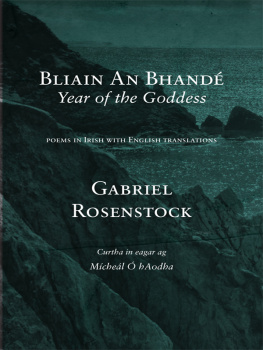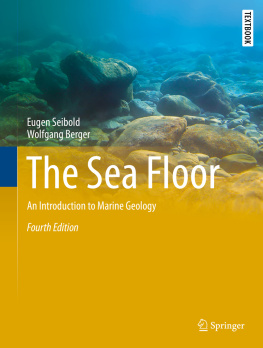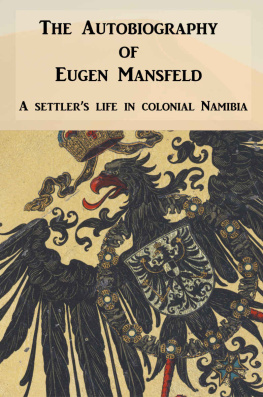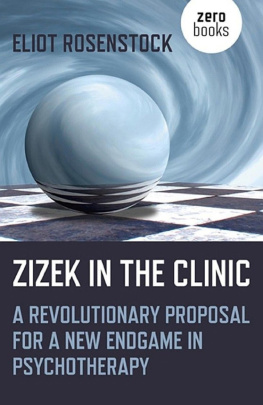Eugen Rosenstock-Huessy - The Christian Future: Or the Modern Mind Outrun
Here you can read online Eugen Rosenstock-Huessy - The Christian Future: Or the Modern Mind Outrun full text of the book (entire story) in english for free. Download pdf and epub, get meaning, cover and reviews about this ebook. year: 2020, publisher: Barakaldo Books, genre: Religion. Description of the work, (preface) as well as reviews are available. Best literature library LitArk.com created for fans of good reading and offers a wide selection of genres:
Romance novel
Science fiction
Adventure
Detective
Science
History
Home and family
Prose
Art
Politics
Computer
Non-fiction
Religion
Business
Children
Humor
Choose a favorite category and find really read worthwhile books. Enjoy immersion in the world of imagination, feel the emotions of the characters or learn something new for yourself, make an fascinating discovery.
- Book:The Christian Future: Or the Modern Mind Outrun
- Author:
- Publisher:Barakaldo Books
- Genre:
- Year:2020
- Rating:3 / 5
- Favourites:Add to favourites
- Your mark:
- 60
- 1
- 2
- 3
- 4
- 5
The Christian Future: Or the Modern Mind Outrun: summary, description and annotation
We offer to read an annotation, description, summary or preface (depends on what the author of the book "The Christian Future: Or the Modern Mind Outrun" wrote himself). If you haven't found the necessary information about the book — write in the comments, we will try to find it.
The Christian Future: Or the Modern Mind Outrun — read online for free the complete book (whole text) full work
Below is the text of the book, divided by pages. System saving the place of the last page read, allows you to conveniently read the book "The Christian Future: Or the Modern Mind Outrun" online for free, without having to search again every time where you left off. Put a bookmark, and you can go to the page where you finished reading at any time.
Font size:
Interval:
Bookmark:

Barakaldo Books 2020, all rights reserved. No part of this publication may be reproduced, stored in a retrieval system or transmitted by any means, electrical, mechanical or otherwise without the written permission of the copyright holder.
Publishers Note
Although in most cases we have retained the Authors original spelling and grammar to authentically reproduce the work of the Author and the original intent of such material, some additional notes and clarifications have been added for the modern readers benefit.
We have also made every effort to include all maps and illustrations of the original edition the limitations of formatting do not allow of including larger maps, we will upload as many of these maps as possible.
THE CHRISTIAN FUTURE
OR
THE MODERN MIND OUTRUN
BY
EUGEN ROSENSTOCK-HUESSY
The time span of the length of the Church goes from the beginning of the world to its end since the Church originated in her faithful from the start and shall endure until the end.
For, we basically hold that from the beginning of the world to the end of times, no period exists in which there cannot be found those who trust Christ.
Hugo de Sancto Victore, 1141
Patrologia Latina 176, 685
TABLE OF CONTENTS
Contents
TO
Karl Muth
COURAGEOUS ROMAN CATHOLIC LAYMAN IN GERMANY
J. C. Oldham
ECUMENIC MISSIONARY IN GREAT BRITAIN
Ambrose Vernon
ONWARD TRANSLATOR OF OUR FAITH IN THE U.S.
EX EXPERIENTIA SPIRITUS
THE LINKING TOGETHER of the material which the waves of life threw upon my beach in more than thirty years is largely the work of George Morgan. The author of What Nietzsche Means , he challenged me repeatedly about my stubborn religious conservatism: Since you admit that Nietzsches Antichrist and the two World Wars made an epoch, why do you play the mooncalf and remain a Christian?
I let him have all the utterances in which I tried to answer this very question long before he asked it. Before George Morgan entered the army, he worked over the manuscript for a year. Another four years, and thanks to the interest of Reinhold Niebuhr, Douglas Horton and George Thomas, here it is in print.
I had two classes of readers before me when I wrote: one the free fighters, men and women between twenty and thirty who struggle with the spirit in the form of the spirit of their own age and time. To them their generation is a secret society, and it has incommunicable tastes, enthusiasms and interests which are a mystery both to its predecessors and to posterity. The other class contains the men who have experienced the spirit as the great translator from age to age because they themselves have been drafted for this supreme service. The three men to whom this book is dedicated belong to this group.
The dedication of this book is part of its ambitious aim. And the reader will understand this better after I have said a word about the merits of these three friends.
Karl Muth has raised the quality of Roman Catholic literature infinitely by his Hochland . Founded in 1903, this monthly has re-educated the clergy and the laity of Germany in a new sense of quality in all matters of religious art and literature. From 1933 to its suppression by the Nazis in 1942, it never once, as far as I have found, mentioned the Nazis; it kept on the highway of the soul, yet dealt freely with social, political, and historical themes. In the midst of lunacy, it imparted the true spirit.
J. C. Oldham is so widely known in the Anglo-Saxon world that I only have to mention his work for the ecumenic movement and his Christian News-Letter which valiantly presses home the double sense of news: translating the gospel into everyday revelation.
Ambrose Vernon, in the United States, twice has founded a college department for biographyat Carleton and at Dartmouth. The life of Christ, he felt, would meet the students through the lives of other great souls in history, if the spiritual core of biography could be opened up to them as a lawful order.
All these men have retranslated the forms of the spirit, for their own Church and day. They have strengthened my faith. In them I have been able to recognize the life-giving power of the Churchs spirit.
The book, however, which I am allowed to inscribe with their names, is a kind of apology for my different approach to the same eternal problem. For it tries to present the difficulties of a new era and of a new generation: of the generation who showed their faith by becoming soldiers of war. The crux of my life and of the life of the young has been the same: to break the impasse between the tradition of the Holy Ghost and the workings of the spirit of the times in the courage and faith of simple soldiers. The soldier in an army has faith in some spirit. How is this related to the faith in the Holy Spirit, of the Christian tradition? Until we rediscover their relation, the gospel cannot be truthfully preached to the soldiers, nor can the soldiers make themselves understood to the Christian missionaries of the spirit through the ages, and wars will have their way.
The spirits must get together, the One Holy One, and the many of each time. The three friends have translated the One Holy One into new forms. O my friends, will you believe me when I introduce to you the simple faith of the next generation and request you to hear the spirit speak out of their acts of faith?
EUGEN ROSENSTOCK-HUESSY
Advent, 1945
Four Wells
Norwich, Vermont
The average church-going civilizee realizes, one may say, absolutely nothing of the deeper currents of human nature
William James, July 23, 1903.
(Perry II, 317)
The Conflict of Functioning and SpeakingThe Conflict of Words and Names
Some time ago an American returned from abroad with high dreams, for he was going to develop a real theater in this country. On his first evening in New York he went to a downtown restaurant for dinner. Next to him a young couple spent the evening and he could not help listening in. She bravely would try to say something with real eagerness. Then the fellow, looking bright and handsome enough, would respond with a short To h. This would go on for the whole evening. It must be admitted that the raucous To h was not without some modulation; it actually covered in its repetition a number of keys. But it remained the young mans sole contribution as far as articulate speech went. The observer went home and buried all dreams of a new future for the stage. For, he would say, when a lover has nothing more to say, the stage, which is based on the plenitude of speech, and its public have grown too far apart.
In this story, the dilemma of our age is well stated. This dilemma has been the theme of my life ever since 1905.
We are entering upon a speechless future. In this new society the eloquence of neither Daniel Webster nor Phillips Brooks, of neither St. Paul nor Shakespeare is going to be heard by the masses; the wave length on which men listen or speak has changed to infra-eloquence, to an offhand I dont care and what-the-h style.
If this is the future, then Christianity has no future. For the flow of vital speech is the sign of living Christians. They represent Pentecost and its gift of tongues or they do not exist.
The future of our economic order and the future of Christians are in conflict. This conflict seems to be decided at the outset in favor of the economic order. For the great languages of Church as well as State, of the Bible as well as of the Constitution, are losing their power in a daily process of advertising, commercialization, mechanization. People become indifferent to the hullabaloo of all verbiage.
Next pageFont size:
Interval:
Bookmark:
Similar books «The Christian Future: Or the Modern Mind Outrun»
Look at similar books to The Christian Future: Or the Modern Mind Outrun. We have selected literature similar in name and meaning in the hope of providing readers with more options to find new, interesting, not yet read works.
Discussion, reviews of the book The Christian Future: Or the Modern Mind Outrun and just readers' own opinions. Leave your comments, write what you think about the work, its meaning or the main characters. Specify what exactly you liked and what you didn't like, and why you think so.

